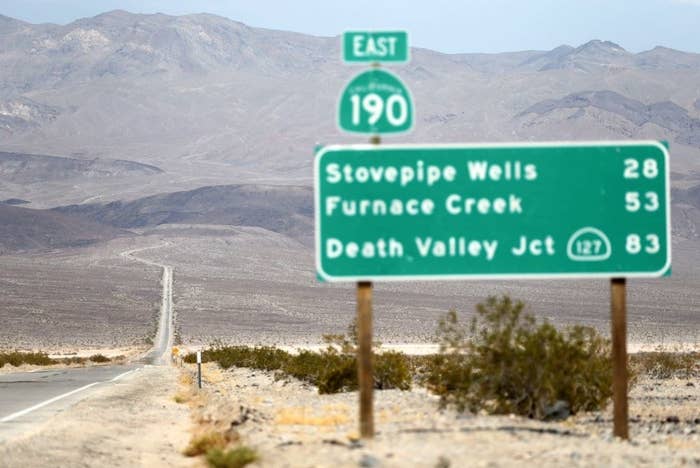
It reached 130 degrees in Death Valley National Park on Sunday afternoon — setting a possible record for the highest temperature recorded on Earth.
The measurement was taken at 3:41 p.m. on Aug. 16 in Death Valley, located in the Mojave Desert of southeastern California. The temperature is going to be reviewed and verified — and if it turns out to be valid, Sunday would set the record for the hottest temperature on Earth since July 10, 1913, when it was 134 degrees at Death Valley's Furnace Creek.
"Assuming yesterday's record is validated, that 130 did occur, that is probably the highest reliably recorded temperature in world history," said Daniel Swain, a climate scientist with the UCLA's Institute of the Environment and Sustainability. The 1913 record, and other historical temperature records, are in dispute among scientists.
The NWS said Sunday's temperature might make this the hottest August in Death Valley on record. On Monday, the agency issued an excessive heat warning for the area until Thursday night, when it's projected to cool down to under 120.
🌡️🥵 @NWS is forecasting an astonishing high of 132F for Death Valley this afternoon! https://t.co/0gc3Wxn3Om
Death Valley is consistently one of the hottest places on Earth, and it's the lowest elevation of anywhere in North America at -282 feet below sea level. The equipment that measured Sunday's scorcher is located 193 feet below sea level.
The "world's hottest temperature" is something that's perpetually in dispute. Weather historians have previously quashed so-called record-breakers, such as a 136-degree measurement in El Azizia, Libya, in 1922 and a 131-degree reading in Tunisia in 1931.
"The fact that this heat wave is capable of generating the hottest temperature served in Death Valley in at least 100 years — and that's being generous — that tells you a lot about how extreme the air mass over California and the West is right now," Swain said.
The West Coast, and California in particular, is being hit with several extreme weather events right now: A prolonged heat wave has led to dozens of wildfires, including the Lake fire in Southern California, which has burned more than 18,000 acres. On Saturday, a wildfire spawned a "firenado" near Reno, Nevada. And unusual thunderstorms with gusts of 60-plus mph, driven in part by moisture from Tropical Storm Fausto, hit the San Francisco Bay Area on Sunday and Monday.
Up to 250,000 people might lose power in rolling blackouts throughout the state as a protective measure because of the wildfires, it was announced over the weekend.
These weather events are more likely to occur and are more intense because of climate change, Swain said.
"Really, anytime we see an extreme heat wave these days, there's a human fingerprint on that," he said, adding, "I don't think we've seen the end of it yet, especially from a prolonged heat and wildfire impact. The legacy of this heat wave is going to be with us for a long time."
Peter Aldhous contributed reporting for this story.
